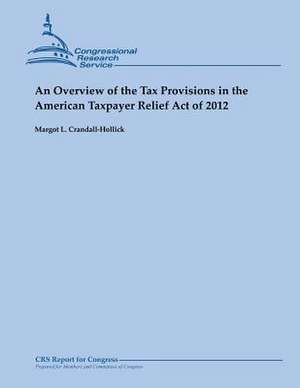An Overview of the Tax Provisions in the American Taxpayer Relief Act of 2012
Autor Margot L. Crandall-Hollicken Limba Engleză Paperback
Preț: 93.84 lei
Nou
Puncte Express: 141
Preț estimativ în valută:
17.96€ • 18.55$ • 14.95£
17.96€ • 18.55$ • 14.95£
Carte disponibilă
Livrare economică 04-18 martie
Preluare comenzi: 021 569.72.76
Specificații
ISBN-13: 9781482527551
ISBN-10: 1482527553
Pagini: 36
Dimensiuni: 216 x 280 x 2 mm
Greutate: 0.11 kg
Editura: CREATESPACE
ISBN-10: 1482527553
Pagini: 36
Dimensiuni: 216 x 280 x 2 mm
Greutate: 0.11 kg
Editura: CREATESPACE
